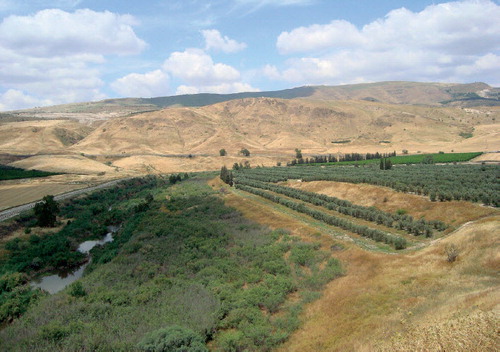Transboundary water governance in the Middle East and North Africa (MENA) region is a complex issue as it is not just a technical problem, but a political one. It must therefore be contextualized in the broader geopolitical context, considering national security, regional geopolitics, inter-sectorial interests and power asymmetries. This is particularly true as most of surface water originates outside the countries of the Arab region, and transboundary waters represent over two thirds of its overall water resources. My research focuses on water scarcity in the case of Jordan, unfolding its roots, and providing innovative policy recommendations. My fieldwork focused on collecting data on discourses of water scarcity, investigating how the discourse is constructed, the power struggle within and around the discourse, and identifying the actors constructing and reproducing this discourse.
Jordan is among the three most water scarce countries in the world. Recent literature has identified the issue of water scarcity in the country as the result of a combination of both limited water resources and their mismanagement. The government emphasizes the limited water resources, compounded by population growth due to immigration and waves of refugees, climate change, low precipitation and the transboundary nature of the water resources, as the main factors causing water scarcity in the country. Donors, international organizations and NGOs emphasize mismanagement in the agricultural sector, leakages and non-revenue water as the main reasons contributing to water scarcity in Jordan.
The solutions identified and implemented by the government, based on an understanding of the issue as resulting from limited water resources, focus mainly on the supply side. These solutions include exploitation of non-renewable groundwater resources from the Disi aquifer, the construction of a desalination plant within the Red Sea–Dead Sea Canal project, construction of new dams and over-exploitation of the over-pumped aquifers in the country.
This decision to focus on the supply side is linked to political and social considerations, as implementing demand-side management strategies, such as tariff systems in the agricultural sector and reforms in the agricultural productions (which currently uses almost 60% of the water resources to produce less than 4% of the GDP), would undermine and challenge the economic interests of the farming elite. In the Jordanian context, tribal and farming elites are very powerful and, for the government it would be politically costly to make even a small challenge to what has been often defined as the ‘shadow state’. Given the regional political context and the priority of maintaining political stability in Jordan, ensuring the support of the tribal and farming elites cannot be negotiated.
My research provides policy recommendations— advancing concrete and innovative solutions to government as well as to the international organizations, donors and NGOs. In particular, I suggest combining supply and demand side solutions, instead of seeing supply and demand as a dichotomy. The solutions recommended include: awareness raising campaigns for behavioral change in both the domestic and agricultural sectors; maintenance of the water supply system through partnership with the local water utilities; stronger monitoring of water thefts through strengthening of inter-ministerial cooperation; and focus on the reuse of treated wastewater.
In addition, the Jordanian government should further support the regional dialogue and cooperation over water resources with its neighbouring countries, improving transboundary water cooperation and working towards a fair and just allocation. Through innovative solutions on the regional side, Jordan should lead the way towards creative and win-win solutions looking out of the water-box, considering inter-sectorial interests, including energy, food production and tourism. Jordan should renegotiate and call for new basin agreements on the Jordan River and on the Yarmouk River, with the goal of increasing water resources, rehabilitating the Jordan River, consequently saving the Dead Sea and the biodiversity of the basin, in addition to ensuring stability in the region. The agreements should be fair to all countries involved, and follow principles of international humanitarian law and UN international water conventions.

